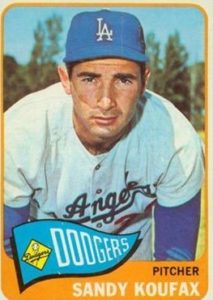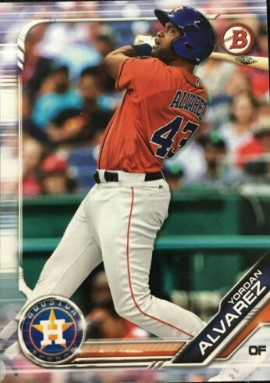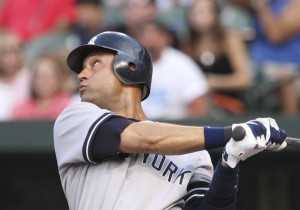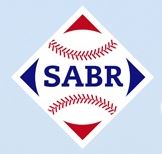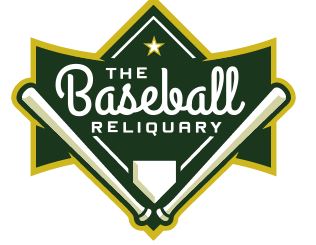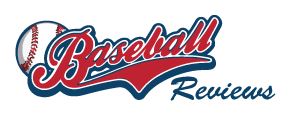BASEBALL ROUNDTABLE TRIVIA TEASER:
Since the Cy Young Award was first presented in 1956 (To honor Cy Young, who passed away in 1955), we have seen 23 unanimous CYA selections (17 different pitchers). No one has been a unanimous CYA selection more often than the Dodgers’ Sandy Koufax, who accomplished the feat three times (and did it when only one CYA was awarded each season). Koufax was the unanimous selection in 1963, 1965 and 1966. In 1964, despite a 19-5 record and an NL-lowest 1.74 earned run average, Koufax finished third in the CYA balloting. Your question? Who were the two pitchers (one American League, one National League) who finished ahead of Koufax in that season’s CYA balloting? Hint: Both won at least 20 games.
YOUR ANSWER: Dean Chance and Larry Jackson.
Chance of the Los Angeles Angels won the 1964 CYA with 17 of 20 votes – based on a 20-9 season in which he led the American League in wins, ERA (1.65), complete games (15), shutouts (11),and innings pitched 278 1/3. Two votes went to the Cubs’ Jackson, who won an MLB-tops 24 games (11 losses), with a 3.14 ERA, 19 complete games and three shutouts. Koufax, who was shut down in mid-august due to an arm injury, got one vote.
Read on for a look at all of MLB’s unanimous Cy Young Award winners, where you can also pick up some tidbits like which of these unanimous CYA winners:
- pitched an all-strikeout perfect game in high school;
- was also a unanimous league MVP selection in his unanimous CYA season;
- was traded during his unanimous CYA season;
- after retiring from baseball played in a band that opened for Willie Nelson;
- threw a perfect game in his unanimous CYA season;
- in his unanimous CYA season, gave up zero runs in six September starts (55 innings);
- and more.
——————UNANIMOUS CY YOUNG AWARD WINNERS —————————
1963-65-66 …. Sandy Koufax, Dodgers
In the final four seasons of an MLB career cut short by arm problems, Sandy Koufax was clearly the best pitcher in baseball – a three-time unanimous Cy Young Award winner at a time when only one award was given out each season. In each of those three CYA seasons, Koufax led all of MLB (or tied for the lead) in wins, earned run average and strikeouts.
In 1963, Koufax went 25-5, with a 1.88 earned run average and 306 strikeouts. He had 20 complete games and 11 shutouts in 40 starts (311 innings pitched) and was also the NL Most Valuable Player (not unanimous).
In 1965, Koufax notched 26 wins (eight losses), with a 2.04 earned run average and 382 strikeouts. He had 27 complete games and eight shutouts in 41 starts (335 2/3 innings).
In 1966, the Hall of Fame southpaw’s final season (at age 30), Koufax went 27-9, 1.73, with 317 whiffs. He notched 27 complete games (five shutouts) in 41 starts (323 innings).
Sandy Koufax really turned it on in his final four seasons (1963-66), going 97-27, 1.86, with 1,228 strikeouts in 1,192 innings pitched. In his first eight seasons, Koufax was 68-60, 3.17 with 1,168 strikeouts in 1,131 2/3 innings.
Over a 12-season MLB career (1955-66), Koufax went 165-87, 2.76, with 2,396 strikeouts in 2,324 1/3 innings pitched. He was a six-time All Star, three-time Cy Young Award winner, one-time NL Most Valuable Player and two-time World Series MVP. He led his league in earned run average in six seasons (consecutively), in wins three times, complete games and innings pitched twice (his final two campaigns), shutouts three times and strikeouts four times.
—————————————————-
Until 1967 only one CY Young Award was presented each season. From 1968 forward, a CYA winner was selected for each league.
1968 …. Denny McLain, Tigers
In the Year of the Pitcher, Denny McLain was arguably “The Pitcher of the Year.” The unanimous Cy Young Award winner won 31 games (just six losses), becoming the first 30-game winner since Dizzy Dean in 1934. McLain also put up a 1.96 earned run average, a league-best 28 complete games (41 starts), a league-topping 336 innings pitched, six shutouts and 280 strikeouts. That season, McLain was also the unanimous choice for American League Most Valuable Player.
In his 1968, 31-win season, Denny McLain led all MLB pitchers in home runs allowed (31).
Over a ten-season MLB career, McLain was a three-time All Star, two-time Cy Young Award winner (1968 & 1969) and, of course, the 1968 AL MVP. He led his league in wins twice, starts twice, complete games once, shutouts once and innings pitched twice. He was a thirty-game winner once and won 20 or more in two additional seasons. He finished with a 131-91 record, a 3.39 earned run average and 1,282 strikeouts in 1,886 innings pitched.
————————————————————-
1968 … Bob Gibson, Cardinals
A fierce competitor, Bob Gibson put together a dominant season in 1968. He went 22-9, with a 1.12 earned run average – the fourth-lowest in MLB history (among qualifying pitchers) and the lowest since 1914. He logged 28 complete games in 34 starts, including an MLB-best 13 shutouts. That season, Gibson fanned 268 batters in 304 2/3 innings. Oh, and he won a Gold Glove. This performance not only earned Gibson a unanimous selection as the NL CYA winner, but also the NL Most Valuable Player Award (not unanimous, Pete Rose got six of the 20 votes),
In June-July of the 1968 season, Bob Gibson started twelve games and went 12-0 with a 0.50 earned run average. He pitched 12 complete games in that span, including eight shutouts. He gave up three runs in his first June start (June 2) and a total of three runs in his next eleven outings Over those eleven games, his ERA was 0.27),
Over a 17-season MLB career, the Hall of Famer went 251-174, 2.91, with 3,117 strikeouts in 3,884 1/3 innings pitched. He was a nine-time All Star, two-time Cy Young Award winner, the 1968 NL Most Valuable Player, a nine-time Gold Glover and a two-time World Series MVP. Gibson, a five-time twenty -game winner, led the NL in victories once, ERA once, complete games once, shutouts four times and strikeouts once. He went 7-2, 1.89 in nine World Series starts (eight complete games) and holds the record for strikeouts in a World Series game (17 on October 2, 1968). Gibson also pitched a no-hitter in an 11-0 win over the Pirates on August 14, 1971.
Bob Gibson is one of only two pitchers to strikeout at least one batter in every inning of a World Series game (the other is Ed Walsh, October 11, 1906).
——————————————————–
After a tie for the American League Cy Yong Award in 1969 (Mike Cueller and Denny McLain), voting was changed to allow the casting of votes for a first-, second- and third-place candidate (as opposed to voting for just one pitcher).
1978 … Ron Guidry, Yankees
In his unanimous CYA season, Ron Guidry led the league in wins (25, against just three losses), earned run average (1.74) and shutouts (9). He threw 16 complete games in 35 starts and fanned 248 batters in 273 2/3 innings.
Ron Guidry’s final regular season win in his 1978 CYA season was one of the most significant in Yankee history. The Yankees and arch-rival Red Sox had tied for the Al East title at 99-63. Guidry was selected to start the one-game playoff (in Boston), matched up against the Red Sox Mike Torrez. Guidry got the win (Bucky Dent got the fame with a three-run home run in the seventh inning), going 6 1/3 innings, giving up two runs on a walk and six hits and fanning five. The Yankees went on to beat the Royals in the American League Championship Series (in four games) and the Dodgers in the World Series (six games). Guidry got one start in each series, giving up just two runs in 17 frames.
In a 14-season MLB career (1975-88), Guidry was four-time All Star and five-time Gold Glover. He won 170 games (91 losses) and put up a 3.29 earned run average. He reached twenty or more wins in three seasons (leading the AL twice), was a two-time ERA leader and led the league in complete games and shutouts once each. In 2,392 career innings, he fanned 1,778 batters.
The runner up to Guidry for the 1978 AL CYA was the Brewers’ Mike Caldwell (22-9, 2.36).
———————————————————
1984 …. Rick Sutcliffe, Cubs
1984 did not start out like a Cy Young-worthy season for Rick Sutcliffe. He opened the season with the Indians and was 4-5, 5.15, when he was traded (June 13) to the Cubs. It was gangbusters from there. For the Cubbies, Sutcliffe went 16-1, 2.69 in 20 starts (seven complete games/three shutouts), fanning 155 batters in 150 1/3 innings – leading the Cubs to a Division title.
Rick Sutcliffe is one of only six players to win the Sporting News Comeback Player of the Year Award twice … and the only one to win it in both the American and National League. In 1987, Sutcliffe was the Comeback Player of the Year as a Cub – going 18-10, 3.69, following his 1986 record of 5-14, 4.64. In his 1992 Comeback Player of the Year season, Sutcliffe went 16-15, 4.47 for the Orioles, following a 6-5,4.10 1991 season for the Cubs.
Sutcliffe pitched in 19 MLB seasons (1976, 1978-94), going 171-139, 4.08, with 1,679 strikeouts in 3,697 2/3 innings pitched. In addition to his 1984 Cy Young Award, he was the 1979 NL Rookie of the Year and a three-time All Star. He led his league in wins once and earned run average once.
The runner up to Sutcliffe for the 1984 Cy Yong Award was NL Rookie of the Year Dwight Gooden of the Mets, who went 17-9, 2.60 and led the NL with 276 strikeouts.
———————————————————————
1986 and 1998 … Roger Clemens, Red So and Blue Jays
Two of Roger Clemens’ record seven Cy Young Awards saw him capture all the available first-place votes – 1986 (Red Sox) and 1998 (Blue Jays).
In 1998, Clemens won an MLB-best 24 games (just four losses) and posted the American league’s lowest earned run average (2.48). He notched ten complete games in 33 starts and fanned 238 batters in 254 innings pitched. His performance earned him AL Most Valuable Player Honors (not unanimous.)
The runner for AL Cy Young recognition in 1986 was the Brewers’ Teddy Higuera, who went 22-11, with a 2.79 ERA.
Clemens is the only MLB pitcher to record multiple games (two) in which he fanned 20 batters in nine innings. One of those came in his 1986 unanimous CYA season. On April 29 of that season, Clemens fanned 20 batters in a 3-1 win over the Seattle Mariners. (He pitched nifty three-hitter, the only run scoring on a Gorman Thomas home run.) That effort made Clemens the first MLB pitcher to fan 20 batters in a nine-inning contest. (On September 12, 1962, the Senators’ Tom Cheney fanned 21 batter in a 2-1 16-inning, complete-game win over the Orioles.) Other pitchers to fan 20 batters in a nine-inning game: Kerry Wood, Cubs; Randy Johnson, Diamondbacks; Max Scherzer, Nationals.
In 1998, Clemens was again a unanimous Cy Young Award selection, this time with the Blue Jays. That season, he led the AL (tied for the MLB lead) in wins with 20 and topped the junior circuit in earned run average (2.65) and strikeouts (271 in 234 2/3 innings). He threw five complete games and three shutouts in 33 starts.
The runner for American League CYA that season was the Red Sox’ Pedro Martinez (19-7, 2.89, 251 strikeouts).
Clemens enjoyed a 24-season MLB career – going 354-184, 3.12 – with 4,672 strikeouts (third all-time) in 4,916 2/3 innings pitched. He was an eleven-time All Star, seven-time Cy Young Award winner, the 1986 AL MVP and the 1986 All Star game MVP. He led his league in earned run average seven times; shutouts six times; strikeouts five times; wins three times; and complete games three times. He won 20 or more games in a season five times.
Roger Clemens won Cy Young Awards with four teams: Red Sox, Blue Jays, Yankees and Astros.
——————————————————
1988 … Orel Hershiser, Dodgers
In 1988, Orel Hershiser went 23-8 (leading the NL in wins), with a 2.26 earned run average. He tied for the MLB lead in complete games with 15, as well as in shutouts with eight. He fanned 178 batters in 267 innings pitched. Oh yes, and he brought home a Gold Glove.
In September of his 1988 unanimous CYA season, Orel Hershiser gave up zero – yes, zero – runs in 55 inning pitched. His work included five complete-game shutouts and a ten-inning start in which he gave up no runs (but which the Dodgers lost 2-1 in 16 innings). The September stretch was part of a regular-season MLB record streak of 59 consecutive scoreless innings.
Hershiser pitched in 18 MLB seasons (1983-2000), going 204-150, 3.48, with 2,014 strikeouts in 3,130 1/3 innings. He was a three-time All Star; the 1988 National League Championship Series and World Series MVP; and the 1996 American League Championship Series MVP. He led his league in wins, complete games and shutouts once each.
The runner up to Hershiser in the 1988 CYA race was the Reds’ Danny Jackson (23-8, 2.73).
———————————————————————
1994 and 1995 … Greg Maddux, Braves
Hall of Famer Greg Maddux won four Cy Young Awards, two (1994 and 1995) in which he captured all the first-place votes.
In the strike-shortened 1994 MLB season, Maddux led the National League in wins with 16 (six losses) and topped all of MLB with a 1.56 earned run average. He topped MLB with ten complete games and tied for the NL lead in shutouts with three. He fanned 156 batters (walking just 31) in 202 innings pitched. He also earned a Gold Glove.
The runner up to Maddux for the 1994 NL CYA was the Expos’ Ken Hill (16-5, 3.32.)
Greg Maddux was the first pitcher to win four consecutive Cy Young Awards (1992-95). Randy Johnson (Diamondbacks) matched that feat from 1999-2002. During his streak of four straight CYAs, Maddux went 56-27, with a 2.08 earned run average. He struck out 552 batters (153 walks) in 737 innings pitched.
In 1995, another strike-shortened season (144 games), Maddux again led the National League in wins with 19 (just two losses, a .905 winning percentage). He posted a league-best 1,63 earned run average, topped MLB in compete games (ten) and led the NL in shutouts (three); fanning 183 batters (just 23 walks) in 209 2/3 innings.
The runner up for the 1995 NL CYA was the Reds’ Pete Schourek, who went 19-7, 3.22 in 29 starts.
Greg Maddux led his league in fewest walks per nine innings pitched in nine seasons.
Maddux pitched in 23 MLB seasons (1986-2008), earning his way into the Hall of Fame with 355 wins (eighth all time) versus 227 losses, a 3.16 earned run average and 3,371 strikeouts (999 walks) in 5,008 1/3 innings pitched. He was an eight-time All Star, four-time Cy Young Award winner and an 18-season Gold Glover. He led his league in wins three times (only twice reaching 20 wins, however); ERA four times; complete games three times; shutouts five times; and innings pitched five times.
——————————————————————
1999 & 2000 …. Pedro Martinez, Red Sox
Hall of Famer Pedro Martinez earned three AL Cy Young Awards (1997-1999-2000), the last two of which saw him earn unanimous-choice status.
In 1999, Martinez led MLB with 23 wins (four losses) and posted an MLB-lowest 2.07 earned run average in 31 stats. He pitched 213 1/3 innings and fanned an AL-tops 313 batters – an ML-best 13.2 strikeouts per nine frames.
The runner up for the 1999 American League CYA was the Orioles’ Mike Mussina, who went 18-7, 3.50.
Oh, Brother!
On August 29, 996, Pedro Martinez faced a match up he didn’t really care for. On that day, Pedro started for the Montreal Expos against the Dodgers (in Montreal). His mound opponent? His older brother Ramon. The Martinez brothers acquitted themselves well. Ramon went eight frames, giving up three hits, five walks and just one run – earning the win. Pedro pitched a complete-game, six-hitter, with one walk and 12 whiffs – but took the loss in the 2-1 contest.
In 2000, Martinez repeated as Cy Young Award winner (again unanimously), with an 18-6 record, an MLB-lowest 1.74 earned run average and an AL-topping 284 strikeouts. He also led the AL in shutouts with four.
The runner up to Martinez in 200 was Oakland’s Tim Hudson (20-6, 4.14).
Martinez pitched in the major leagues for 18 seasons (1992-2009), going 219-100, 2.93 and fanning 3,154 batters in 2,827 1/3 innings pitched. The Hall of Famer was an eight-time All Star and three-time Cy Young Award winner. He led his league in wins once; winning percentage three times; earned run average five times; complete games and shutouts once each; and strikeouts three times (topping 300 whiffs in two season). He also led his league in strikeouts per nine innings five times and strikeouts-to-walks ratio four times.
————————————————————–
2002 … Randy Johnson, Diamondbacks
Randy Johnson won five Cy Young Awards – and his 2002 NL CYA selection was unanimous. That season, Johnson led MLB in wins (24 versus five losses); complete games (tied at eight) and strikeouts (334). He led the NL in winning percentage (.828), earned run average (2.32) and innings pitched (260_.
Johnson’s Arizona teammate Curt Schilling finished second in the 2002 CYA balloting, after a 23-7, 3.23, 316 strikeout season.
In 2002, the Diamondbacks’’ Randy Johnson and Curt Schillings became the first pair of MLB teammates ever to record 300 or more strikeouts (each) in the same season. In 2019, the Astros’ Gerrit Cole and Justin Verlander matched that feat.
Randy Johnson pitched for 22 MLB seasons (1988-2009), picking up 303 wins (166 losses) and recording a 3.29 earned run average. His 4,875 strikeouts (4,135 1/3 innings) are second all time. The Hall of Famer was a five-time Cy Young Award winner, ten-time All Star and the 2001 World Series MVP. He three times won twenty or more games in a season, led his league in earned run average four times, winning percentage four times, complete games four times, shutouts twice and strikeouts nine times – topping 300 K’s in an MLB record-tying (Nolan Ryan) six seasons.
———————————————————-
2004 and 2006 … Johan Santana Twins
The Twins’ Johan Santana won two Cy Young Award and was a unanimous number-one selection both times.
In 2004, Santana went 20-6, with a league-best 2.61 earned run average and an AL-topping 265 strikeouts (222 innings pitched) – which translated to an AL best 10.5 strikeouts per nine innings.
Curt Schilling of the Red Sox was the AL runner up in the 2004 CYA voting, after a 21-6, 3.26, 203 strikeout season.
Johan Santana was traded (by the Twins) to the Mets before the 2008 season. On June 1, 2012, he tossed a no-hitter (in New York) in an 8-0 win against the Cardinals, walking five and fanning eight. It was the first – and is still the only – no hitter thrown by a Mets’ hurler.
In 2006, Santana led the AL in wins (19, versus six losses) and topped MLB in both earned run average (2.77) and strikeouts 245 – logging an AL-tops 9.4 whiffs per nine.
The 2006 CYA runner in the American League was the Yankees’ Chien-Mang Wang (19-6, 3.63.).
Santana pitched 13 MLB seasons (2000-10 and 2012). He won 139 games (78 losses), with a 3.20 earned run average and 1,988 strikeouts in 2,025 2/3 innings. He led his league in wins once, earned run average three times, starts and innings pitched twice each, strikeouts three times and strikeouts per nine innings three times. He was a four-time All Star and one-time Gold Glover.
————————————————————-
2007 … Jake Peavy, Padres
In 2007, Jake Peavy led the NL in wins with 19 (six losses) and earned run average at 2.54 and strikeouts with 240. That season, Peavy reached career highs in wins, winning percentage (.760), starts (34), innings pitched (233 1/3) and strikeouts.
The runner up in the 2007 NL CYA balloting was the Diamondbacks’ Brandon Webb (18-10, 3.01).
After retiring from baseball, Jake pursued another passion – music and guitars. His band Jake Peavy and The Outsiders has opened for such acts as Willie Nelson and The Tedeschi Trucks Band. His passion for music is also reflected in the work of the Jake Peavy Foundation, which supports music and the arts, sports and financial literacy programs for young people.
Peavy pitched 15 MLB seasons (2002-16), going 152-126, 3.63, with 2,207 strikeouts in 2,377 innings. He le his league in wins once, earned run average twice and strikeouts twice. He was a three-time All Star and one-time Gold Glover.
———————————————————–
2010 …. Roy Halladay, Phillies
Roy Halladay was a two-time Cy Young Award winner and a unanimous selection in 2010. That season, Halladay led MLB (tied) in wins (going 21-10), while putting up a 2.44 earned run average in an MLB-leading 250 2/3 innings (33 starts). He also topped MLB in complete games (nine) and shutouts (four), while fanning 219 batters.
Halladay gave fans a look at things to come in his very first MLB victory (in just his second MLB appearance). It came September 27, 1998, as Halladay and his Blue Jays faced the Tigers in Toronto. Halladay had a no-hitter going and a 2-0 lead with two outs in the top of the ninth. Pinch hitter Bobby Higginson, broke up the no-no with a home run to left. Halladay settled for a complete-game, 2-1 win in which walked none and fanned eight.
In his 2010 unanimous CYA selection season, Halladay pitched a perfect game against the Marlins in a 1-0, May 29 victory. Then threw a no-hitter against the Reds in the first game of the National League Division Series. The only other post-season no hitter was, of course, Yankee Don Larsen’s 1956 perfect game.
The runner up to Halladay in the 2010 CYA balloting was the Cardinals’ Adam Wainwright, who went 20-11, 2.42.
In a 16-season MLB career (1998-2013), Halladay went 203-105, 3.38 – totaling 67 complete games and 20 shutouts. He struck out 2,117 batters in 2,749 1/3 innings. The Hall of Famer was an eight-time All Star and two-time Cy Young Award winner (once in each league). He won twenty or more games in three seasons, leading his league twice. He also led his league in complete games seven times (five straight seasons from 2007 to 2011), shutouts four times and innings pitched four times.
BASEBALL ROUNDTABLE FANS’ HALL OF FAME BALLOT
There is still time to cast a ballot in BBRT’s Baseball Hall of Fame (unofficial) Fan Voting. And, there is a randomly selected baseball card and bobblehead prize. Click here to access the ballot (read the introduction for prize rules. Click here for BBRT’s take on the 2020 HOF candidates.
——————————————————————–
2014, Justin Verlander, Tigers
In 2014, Justin Verlander topped MLB with 24 wins, 251 innings pitched, 250 strikeouts and a 0.92 WHIP. He also led the AL with a 2.40 earned run average. Verlander’s performance also earned him the American League MVP Award (not unanimous).
Justin Verlander is one of only six MLB pitchers with at least three no hitters (Nolan Ryan had seven, Sandy Koufax four and standing at three are Verlander, Cy Young, Bob Feller and Larry Corcoran).
The runner up to Verlander in the 2011 AL CYA voting was the Angels’ Jered Weaver (18-8, 2.41.
The still-active Verlander was the 2019 National League CYA winner – his second Cy Young Recognition. He has been an All Star in eight of his 15 seasons and was the 2006 AL Rookie of the Year. Verlander has a 225-129, 3.33 stat line, with 3,006 strikeouts in 2,982 innings. He has led his league in wins three times, winning percentage twice, ERA once, games started five times, innings pitched four times and strikeouts five times. He was also the 2017 AL Championship Series MVP.
______________________________________________
2014 … Clayton Kershaw, Dodgers
In 2014, Clayton Kershaw (still active going into 2020) won his third Cy Young Award – and was honored as a unanimous selection. That season, Kershaw led MLB with 21 wins, an 8.75 winning percentage, a 1.77 earned run average, a 0.857 WHIP and six complete games. He fanned 239 batters in 198 1/3 innings. That performance also earned Kershaw National League MVP honors (not unanimous).
Clayton Kershaw pitched an all-strikeout perfect game in Texas high school playoff game (fifteen batters faced, fifteen fanned – before the “mercy rule” ended the contest). He was the USA Today High School Baseball Player of the Year that season, after going 13-0, 0.77 with 139 strikeouts in 64 innings pitched.
The runner up to Kershaw in the NL CYA race was the Reds’ Johnny Cueto, who went 20-9, 2.25.
In his 12 MLB seasons, Kershaw has gone 169-74, 2.44. He has led his league in wins three times, earned run average five times (four straight seasons from 2011-2014), starts twice, complete games twice, shutouts three times, innings pitched once and strikeouts three times. Kershaw is eight-time All Star and one-time Gold Glover.
Primary Resources: MLB.com; Baseball-Reference.com; ESPN.com
BASEBALL ROUNDTABLE ON THE TOP 100 BASEBALL BLOG LIST
 Baseball Roundtable is on the Feedspot list of the Top 100 Baseball Blogs. To see the full list, click here.
Baseball Roundtable is on the Feedspot list of the Top 100 Baseball Blogs. To see the full list, click here.
I tweet baseball @DavidBBRT
Follow/Like Baseball Roundtable’s Facebook Page here. More baseball commentary; blog post notifications; PRIZES.
Member: Society for American Baseball Research (SABR); The Baseball Reliquary; The Negro Leagues Baseball Museum.
